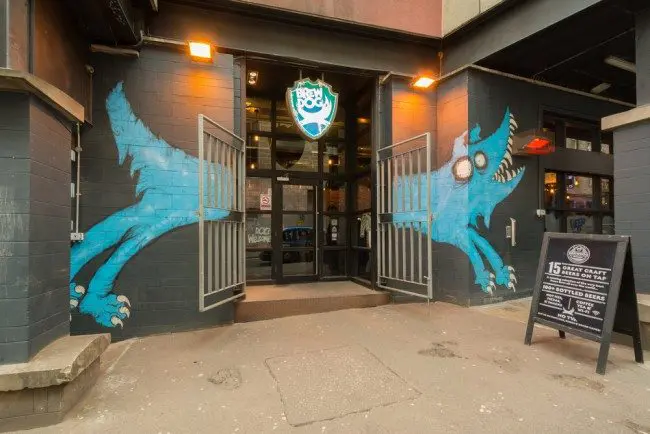BrewDog, the self-described “punk” beer company, has backed down in a row over the name of a family-run pub, blaming “trigger-happy” lawyers for the legal action, reports The Guardian.
The brother-and-sister team behind the Wolf pub in Birmingham were forced to drop their original plan to name the establishment the Lone Wolf, after receiving a legal warning from BrewDog, which has launched a spirit bearing the same name.
But BrewDog founder James Watt announced a change of heart on Monday after the Guardian’s report sparked a backlash that saw the firm, a vocal critic of large, faceless brewing firms, accused of acting like “just another multinational corporate machine”.
Watt tweeted: James Watt(@BrewDogJames): “Our lawyers got a bit trigger happy. We are happy for the Lone Wolf Bar in Birmingham to keep using the name.”
He also offered to send the pub some cases of the brewer’s new spirits range. In a statement, Watt added: “Although they wear suits and are mostly sensible folks, lawyers can sometimes go a bit crazy and forget the kind of business we are and how we behave. They are sorry for their actions and we have put them on washing up duty for a week.”
BrewDog had initially declined to comment on the trademark dispute.
Joshua and Sallie McFadyen, who run the Wolf, welcomed the gesture but used their own Twitter account to indicate they weren’t entirely satisfied with Watt offering his permission to let them use the name:
BrewDog has raised money through an “Equity for Punks” scheme that allows drinkers to invest in return for shares and benefits such as discounts in its bars. But its rapid growth, which it recently said could lead to new investment and a stock market float, has made it harder for the company to maintain its underdog status.
BrewDog’s credentials as a challenger brand were called into question by beer industry figures, including some of its own investors.
Branding expert Graham Hales, chief marketing officer at the Chemistry Group, said BrewDog had made the right decision by backing down. “Lawyers have their jobs to do and any brand needs to protect its trademark,” he said. “That being said, the sense of David versus Goliath in a business context is something people will comment on.
“The threat from a family-run pub is minimal and the bigger win is for the hearts and minds of your prospective customers. You end up doing your dirty washing in front of an audience and social media can be a merciless audience.”
Hales said Watt’s personal intervention could eventually work in BrewDog’s favour. “We’ve now got a business owner calling off his lawyers and favouring the underdog. That feels right for a challenger brand. Perhaps there’s still a win available for them.”
Last year the company disputed a trademarking claim from the estate of Elvis Presley, which took issue with BrewDog’s Elvis Juice beer. In a statement on the firm’s website, it said: “Here at BrewDog, we don’t take too kindly to petty pen pushers attempting to make a fast buck by discrediting our good name under the guise of copyright infringement.”


